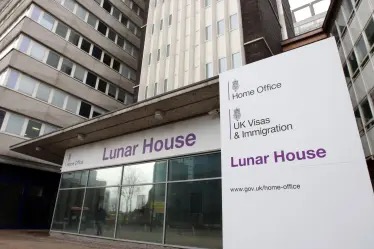A Nigerian man who had three asylum applications rejected has been allowed to remain in Britain after claiming he is gay, despite previously being married to a woman and having a son from another heterosexual relationship.
The 61-year-old, who has been granted anonymity by the Upper Tribunal, successfully argued he faced persecution in Nigeria due to his sexual orientation. Immigration judges ruled his fears were “plausible” despite the Home Office’s repeated concerns about his credibility.
The man first arrived in the UK in 1983 but left nine years later, returning to submit multiple asylum applications beginning in 1996. His case took a dramatic turn when he was convicted of violent disorder and jailed for four years in 2003, leading to a deportation order being issued in 2006.
Claims of Sexual Orientation ‘Realisation’
Following his release from prison, the Nigerian national claimed he had been “in denial” about his sexuality and entered into a gay relationship between 2010 and 2013. He argued that returning to Nigeria would expose him to persecution, including from his own family.
Court documents revealed his family had accused him of “bringing the family name into ridicule and shame” and warned they “would not hesitate to inform the security services of such practice.
The Home Office had rejected three previous asylum claims, dismissing witness accounts that supported his claims of homosexuality. One witness told officials they suspected the man was gay “because of the amount of time he spent in the bathroom and because he had found gay pornographic material.
Upper Tribunal Overturns Rejections
Despite the Home Office’s scepticism, Upper Tribunal judge Gemma Loughran ruled in favour of the appellant on human rights grounds. We consider that his account should not be rejected solely because of his immigration history or because he did not rely on his sexual orientation to remain in the UK prior to 2015,” the judges stated.
Judge Loughran added: “We are satisfied to the lower standard that he is gay. The appeal is allowed on Refugee Convention, humanitarian protection and human rights grounds (Articles 3 and 8).
The decision comes as latest figures show asylum applications in the UK reached record levels, with 84,200 applications made in 2024 relating to 108,100 individuals.
Nigeria’s Anti-LGBT Laws
The ruling highlights the challenges faced by LGBT asylum seekers from Nigeria, where homosexuality remains illegal under both secular and Islamic law. Same-sex relationships can result in 14 years’ imprisonment under the Criminal Code, whilst some northern states operating under Sharia law can impose the death penalty.
Nigeria’s Same Sex Marriage Prohibition Act (SSMPA), enacted in 2014, criminalises not only same-sex relationships but also the registration of gay clubs and organisations. Reports indicate LGBT individuals face severe discrimination, violence, and persecution from both state authorities and non-state actors.
Government guidance notes that LGBT people in Nigeria face “a real risk of persecution or serious harm from non-state actors” and that police corruption means officers often extort bribes from LGBT individuals threatened with arrest.
Complex History Raises Questions
The case has raised questions about the asylum system’s handling of sexual orientation claims. The appellant had previously made an asylum bid based on marriage to a Portuguese woman and has a son from another heterosexual relationship.
His criminal conviction for violent disorder in 2003, which resulted in a four-year prison sentence, had initially led authorities to issue a deportation order. However, the Upper Tribunal determined that neither his immigration history nor his late disclosure of sexual orientation should automatically invalidate his claim.
Rising LGBT Asylum Claims
Data from the Home Office shows that in 2022, there were 1,024 initial decisions on LGBT asylum applications, with a grant rate of 72 per cent. This represents a significant increase from 44 per cent in 2019.
Immigration lawyers note that proving sexual orientation in asylum cases remains challenging, as applicants rarely have documentary evidence and often rely primarily on personal testimony. The UK Lesbian & Gay Immigration Group has previously criticised inappropriate questioning during Home Office interviews.
Broader Immigration Context
The case comes amid intense political debate over immigration and asylum policies. Latest statistics reveal that asylum seekers and refugees made up approximately 16 per cent of immigrants to the UK in 2024.
Opposition politicians have questioned decisions that grant asylum to individuals with criminal convictions, whilst refugee advocates argue that persecution based on sexual orientation remains a legitimate ground for protection under international law.
The Upper Tribunal’s decision emphasises that asylum claims must be assessed on their individual merits, regardless of an appellant’s immigration history or the timing of their disclosure about sexual orientation.
Nigeria remains one of 64 countries worldwide where homosexuality is criminalised, with LGBT individuals facing imprisonment, violence, and social ostracism.
Follow for more updates on Britannia Daily



